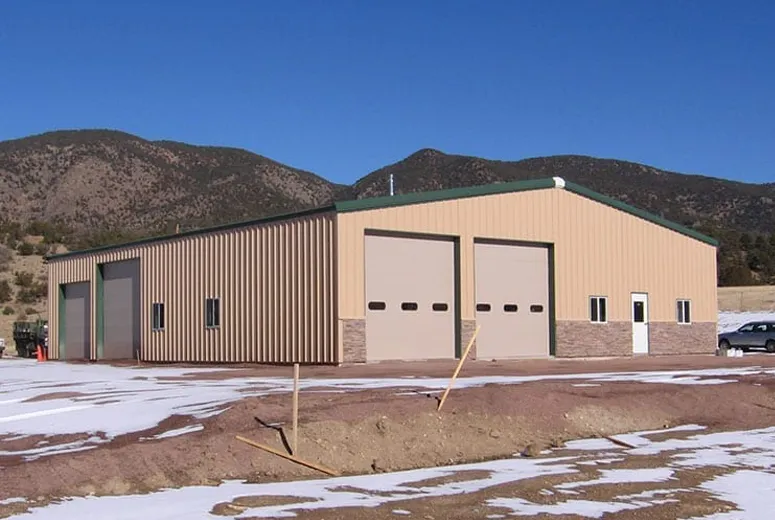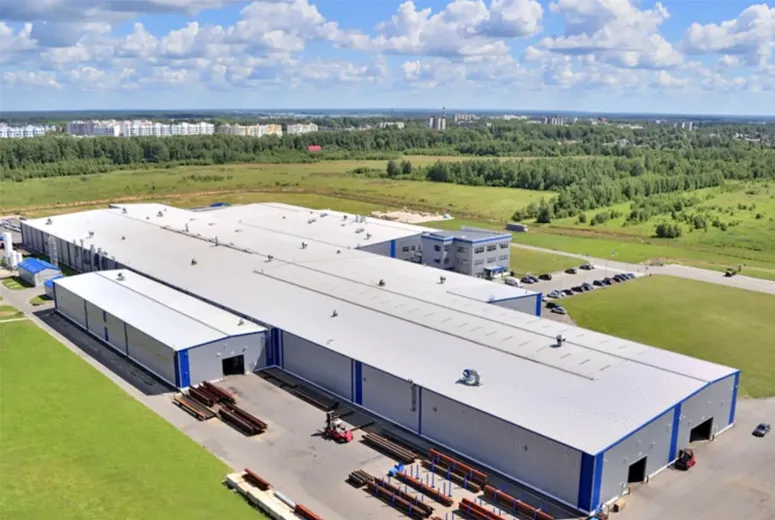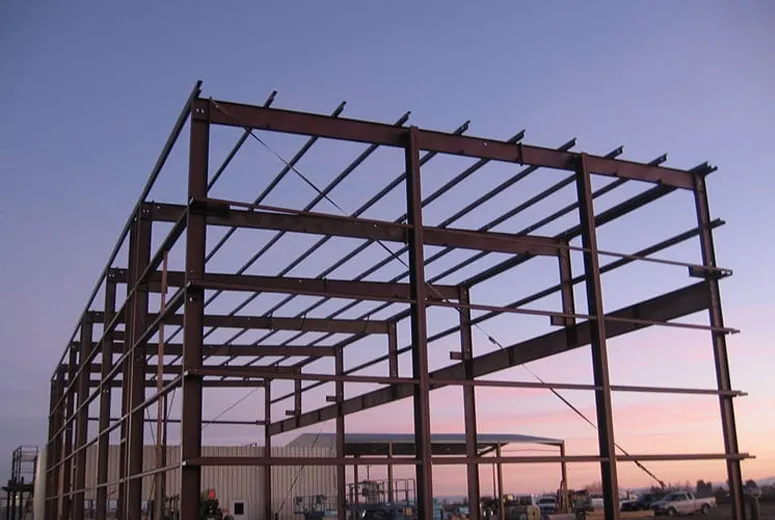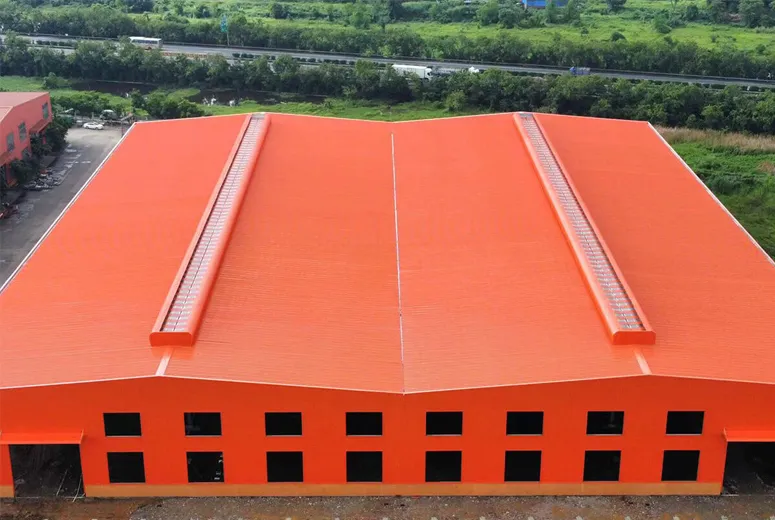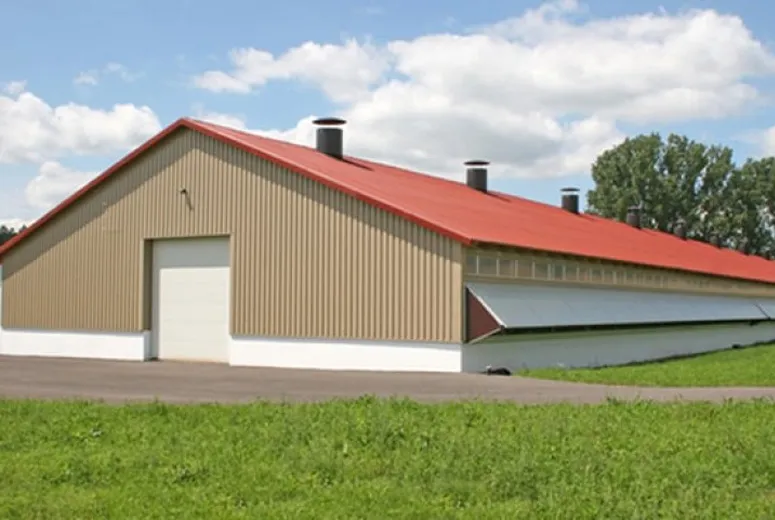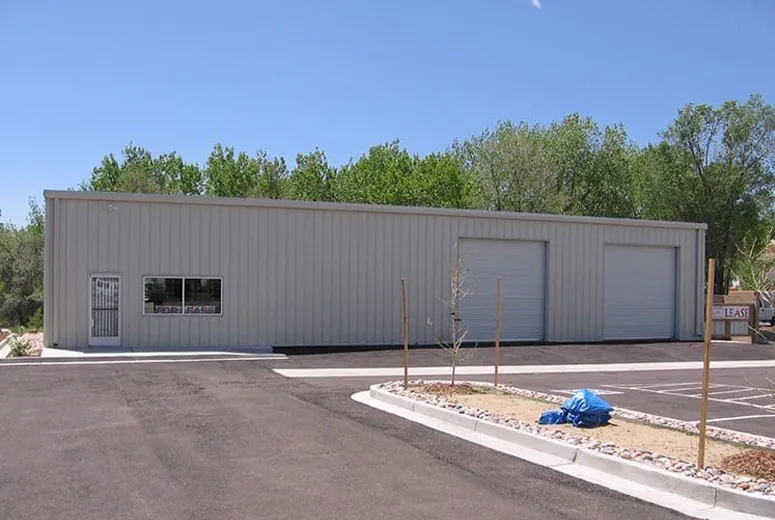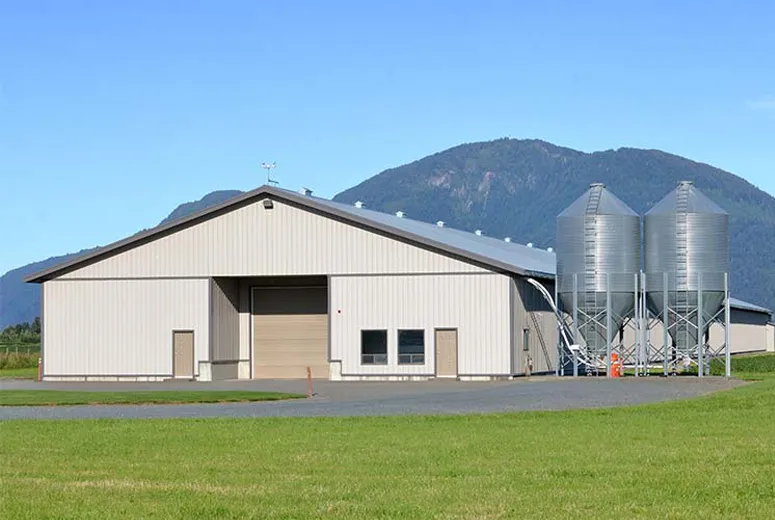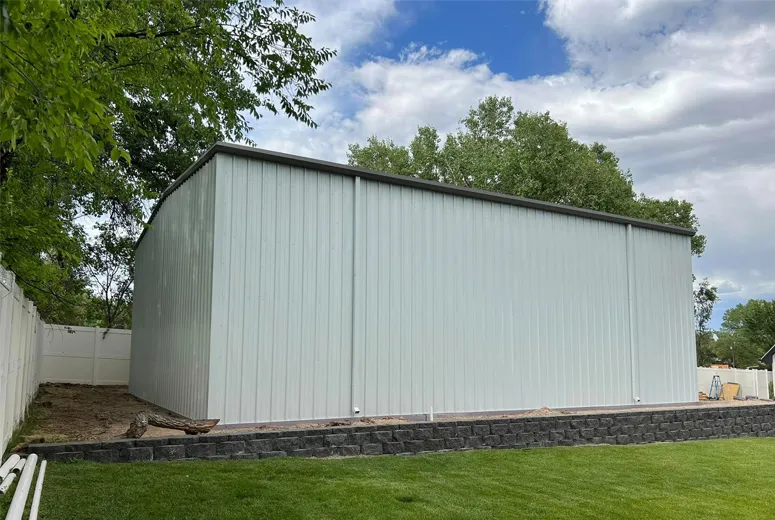Industrial buildings are specialized structures designed to support various industrial operations such as manufacturing, warehousing, logistics, and production. These industrial building types are characterized by their functional design, durability, and adaptability to meet the specific needs of industrial activities.
One of the most significant features of industrial buildings is their large interior space and open floor plans. These industrial building designs enable the accommodation of heavy machinery, production lines, and storage systems without the need for intermediate supports. High ceilings and expansive layouts provide flexibility for reconfiguring spaces as operational needs evolve.
Industrial buildings are often constructed using robust materials like steel and reinforced concrete, ensuring durability and the ability to withstand heavy loads, vibrations, and other industrial stresses. These industrial building materials also enhance the structure’s resistance to environmental factors such as extreme weather and corrosion, making them ideal for long-term use.
Another key feature is the focus on efficiency and functionality. Industrial buildings typically include features like loading docks, wide access doors, advanced ventilation systems, and specialized flooring to handle heavy equipment and high-traffic movement.
Energy efficiency and sustainability are increasingly prioritized in modern industrial buildings. Green building technologies, such as solar panels, LED lighting, and energy-efficient HVAC systems, are integrated to reduce operational costs and environmental impact.
Lastly, customization options make industrial buildings versatile. They can be tailored to specific industries, whether it’s food processing, automotive manufacturing, or logistics hubs, ensuring optimal performance and productivity.
In summary, industrial buildings combine strength, functionality, and adaptability to support the demanding requirements of industrial operations, making them essential assets for various sectors.
The Three Types of Industrial Buildings
Industrial buildings play a crucial role in supporting diverse business operations, and they can generally be categorized into three main types: manufacturing buildings, warehouse buildings, and distribution centers. Each industrial building type serves specific industrial needs.
1. Manufacturing Buildings
These buildings are designed to house production processes, ranging from light manufacturing (e.g., assembly of small products) to heavy manufacturing (e.g., large-scale machinery and equipment production). They are equipped with heavy-duty floors, high ceilings, and ample space for machinery, raw materials, and production lines. Manufacturing buildings often include utility systems like power distribution, ventilation, and water supply to support complex industrial processes.
2. Warehouse Buildings
Warehouse building are primarily used for storage and inventory management. They feature large open spaces with high ceilings to accommodate shelving systems or pallet racks. Key characteristics include loading docks, wide access points for trucks, and climate control for sensitive goods. Warehouses are essential for businesses that need to store raw materials, finished products, or spare parts efficiently.
3. Distribution Centers
Distribution centers are specialized facilities designed for quick movement of goods. They function as hubs for receiving, sorting, and shipping products to various locations. Unlike traditional warehouses, distribution centers prioritize speed and efficiency, often incorporating advanced logistics systems, conveyor belts, and automated inventory tracking technologies.
In summary, the three types of industrial buildings—manufacturing buildings, warehouse buildings, and distribution centers—cater to different aspects of industrial operations, ensuring that steel building companies can manage production, storage, and distribution effectively.
What is an example of an industrial building?
Warehouse buildings are a prime example of industrial buildings, playing a pivotal role in the storage and management of goods for various industries. Designed for functionality and efficiency, warehouses support supply chain operations by providing a centralized space for storing raw materials, finished products, or intermediate goods.
A typical warehouse features large open spaces with high ceilings, allowing for vertical storage solutions such as pallet racks and shelving systems. This maximizes storage capacity while minimizing the building's footprint. Additionally, warehouses are equipped with wide loading docks and large entryways to facilitate easy loading and unloading of goods by trucks or forklifts.
Climate control systems are another key feature of modern warehouses, enabling businesses to store temperature-sensitive goods such as pharmaceuticals, food items, or electronics. Many warehouses are also integrated with advanced inventory management systems, including barcoding, RFID tracking, and automated sorting technologies, ensuring real-time monitoring and efficient stock management.
Warehouses come in various forms, including general storage warehouses, distribution warehouses, and cold storage facilities. For example, cold storage warehouses are specialized to maintain low temperatures, catering to the food and medical industries.
In summary, warehouses exemplify industrial buildings by blending structural durability, operational efficiency, and technological integration. They are indispensable assets for businesses seeking to streamline storage, safeguard products, and support seamless supply chain operations.
What Makes Quality Industrial Building Material?
The success and longevity of any industrial building begin with one fundamental factor: the quality of its materials. At Hebei HongJi Shunda Steel Structure Engineering Co., Ltd., we believe that a structure is only as reliable as what it’s built from. That’s why our approach to industrial building material is based on strict quality control, advanced procurement strategies, and a deep understanding of industrial performance requirements.
From steel frames to roofing systems, every material select by our steel building companies undergoes a thorough vetting process. We procure hot-rolled steel with high tensile strength, apply anti-corrosion coatings, and utilize energy-saving insulation materials that enhance thermal efficiency while promoting sustainability. These practices align with our mission to build greener and smarter industrial facilities.
For over 20 years, our company has been committed to offering integrated steel building solutions. Our 52,000-square-meter facility allows us to conduct real-time testing and quality assessments to ensure every beam, panel, and joint meets or exceeds national and international building codes. Whether constructing a heavy-duty warehouse or a lightweight light industrial building, we tailor the material choice to the project's functional and environmental demands.
Here’s how we ensure material excellence:
•Strategic sourcing: Long-term partnerships with certified steel producers help us maintain pricing control and quality consistency.
•Advanced fabrication techniques: Precision cutting, CNC machining, and automated welding improve performance and structural alignment.
•Eco-conscious engineering: Our materials are recyclable and compatible with green energy systems like solar panels and natural ventilation units.
Choosing top-tier industrial building material also reduces your long-term costs. Better thermal insulation lowers energy bills, while corrosion-resistant components minimize maintenance. Additionally, smart design paired with premium material allows for smoother construction timelines and easier modifications in the future.
With demand for industrial building for sale surging across global markets, material quality is no longer a luxury—it’s a necessity. At Hebei HongJi Shunda, we deliver more than steel structures; we deliver value, durability, and peace of mind through exceptional materials that perform under pressure. No matter the size or scope of your industrial project, our material systems are designed to meet today’s operational needs and tomorrow’s environmental goals.
Industrial Building Design That Delivers Performance
In the world of industrial building design, functionality must go hand in hand with flexibility. A well-designed facility can streamline production, reduce overhead, and support future scalability—all of which are essential in a competitive market. At Hebei HongJi Shunda Steel Structure Engineering Co., Ltd., we provide professional design solutions that optimize space, energy use, and operational workflow.
Our design team includes structural engineers, layout planners, and system integration specialists who work together to transform your requirements into efficient architectural blueprints. Whether you're planning a manufacturing hub, storage depot, or a hybrid industrial flex building, our design process is tailored to deliver intelligent, cost-efficient outcomes.
We begin with an in-depth needs assessment, evaluating load-bearing requirements, logistics flows, ventilation needs, and safety parameters. Using advanced software like PKPM, Tekla Structures, and AutoCAD, we create 3D models that ensure every design detail—down to bolt placement and HVAC routing—is accounted for before construction begins.
Why choose our design services?
•Customized steel building design: We create layouts that match your specific industry—whether it’s food processing, e-commerce warehousing, or machinery assembly.
•Code compliance + international standards: Our designs adhere to both Chinese GB codes and overseas standards like AISC and Eurocodes, making them ideal for export-oriented clients.
•Sustainability embedded: Skylights, solar integration, and low-E panel options help reduce environmental impact and operating costs.
Another strength lies in our design-to-manufacture integration. Unlike third-party designers who hand off blueprints to external builders, our in-house teams ensure your designs are engineered to be built—efficiently and accurately. This significantly reduces design errors, communication breakdowns, and construction delays.
In today’s market, where pre-engineered solutions and fast-track building are in high demand, choosing a smart industrial building design can be the difference between a functional space and a frustrating one. And with industrial building for sale opportunities rapidly expanding, having a partner who can deliver performance-based design is a strategic advantage. At Hebei HongJi Shunda, we don’t just draft blueprints—we engineer your vision with precision and purpose.
Reliable Steel Building Construction Companies in China
Finding dependable steel building construction companiesis one of the most critical steps in realizing a successful industrial facility. The construction process defines not only how quickly your building is delivered but also how long it will last and how well it will perform. That’s why Hebei HongJi Shunda Steel Structure Engineering Co., Ltd. is trusted by clients across China and around the globe as a one-stop industrial building contractor offering start-to-finish services rooted in quality and accountability.
Unlike firms that outsource parts of the process, we maintain full control over design, fabrication, and construction. With a modern production base covering 52,000 square meters, we manufacture structural steel components in-house and deliver them to the project site ready for rapid assembly. This vertically integrated workflow allows us to ensure quality at every stage while minimizing construction timelines.
Our experience spans diverse sectors—from logistics centers and steel processing plants to prefabricated industrial steel buildings used in agriculture and energy. Whether you require a fast-track solution or a complex multi-unit development, our project managers and construction crews have the tools and training to execute your vision on time and on budget.
What makes us a reliable partner?
•Certified construction teams: All workers are trained in advanced erection techniques and safety standards.
•Site adaptability: We can accommodate tight urban footprints, remote rural plots, and extreme environmental conditions.
•Transparent project tracking: Clients receive real-time updates on progress, material status, and site operations through our digital dashboard.
We also offer long-term service guarantees and support for structural upgrades, making us more than just builders—we’re partners in the lifecycle of your facility.
When exploring an industrial building for sale, it’s essential to consider who built it. At Hebei HongJi Shunda, our proven track record, technical expertise, and commitment to detail position us as one of the leading steel building construction companies in the region. We don’t just deliver buildings—we deliver peace of mind, knowing that every nut and bolt was placed with precision and pride.










